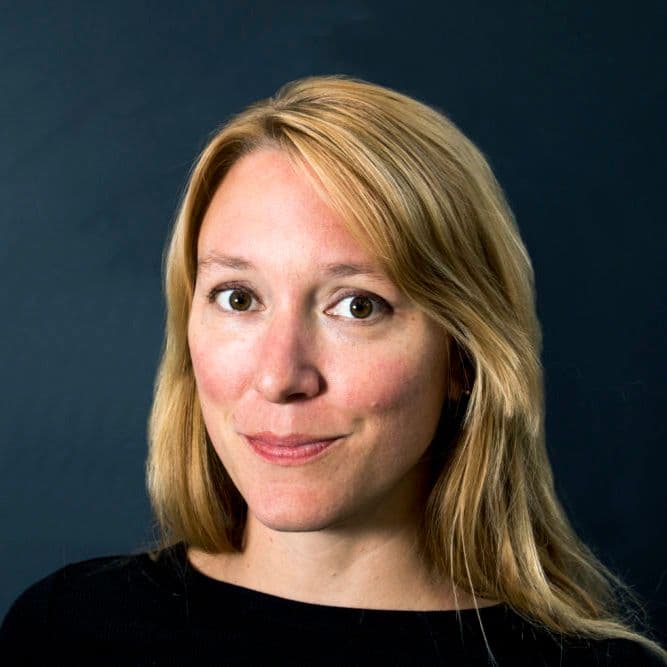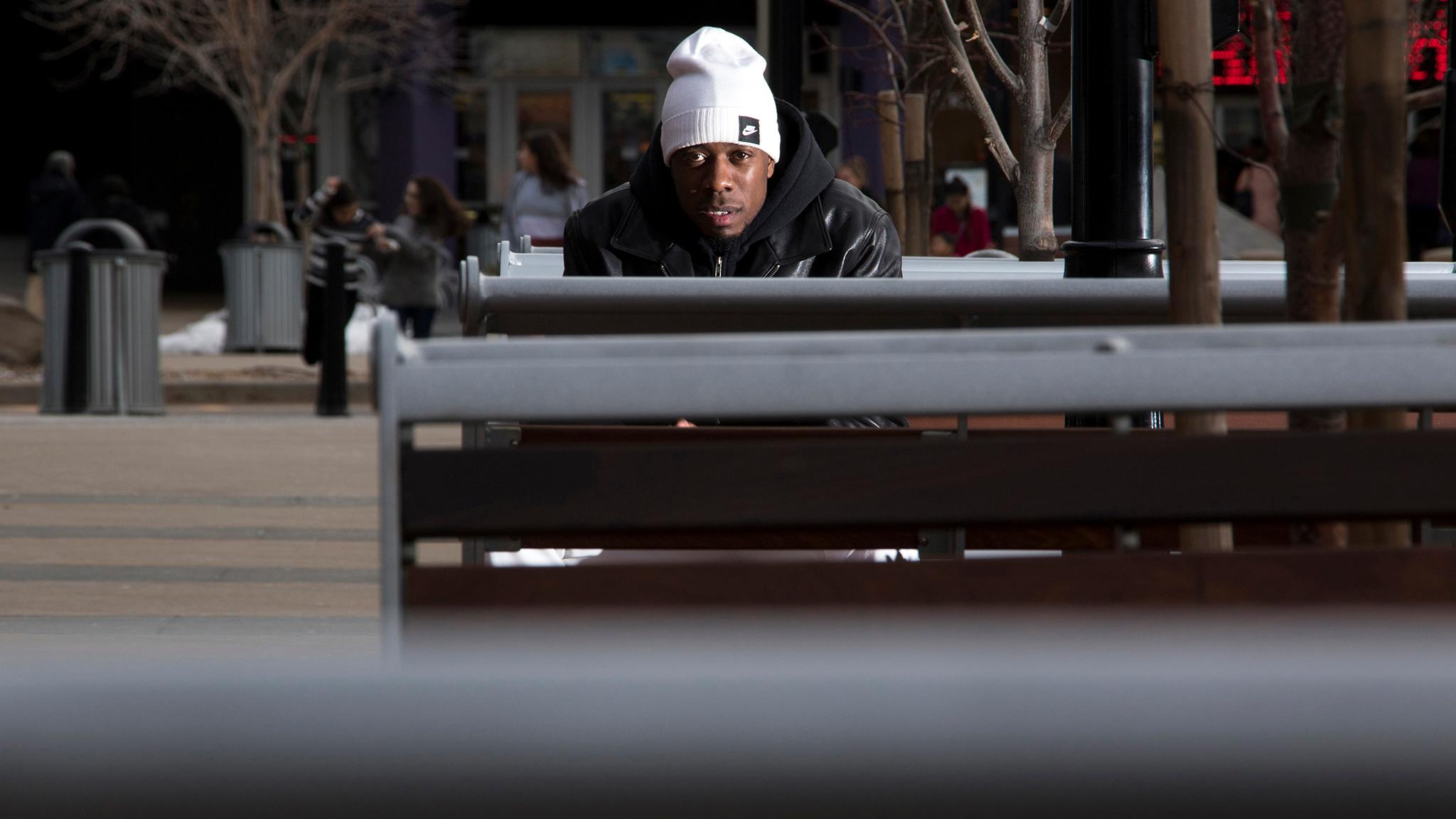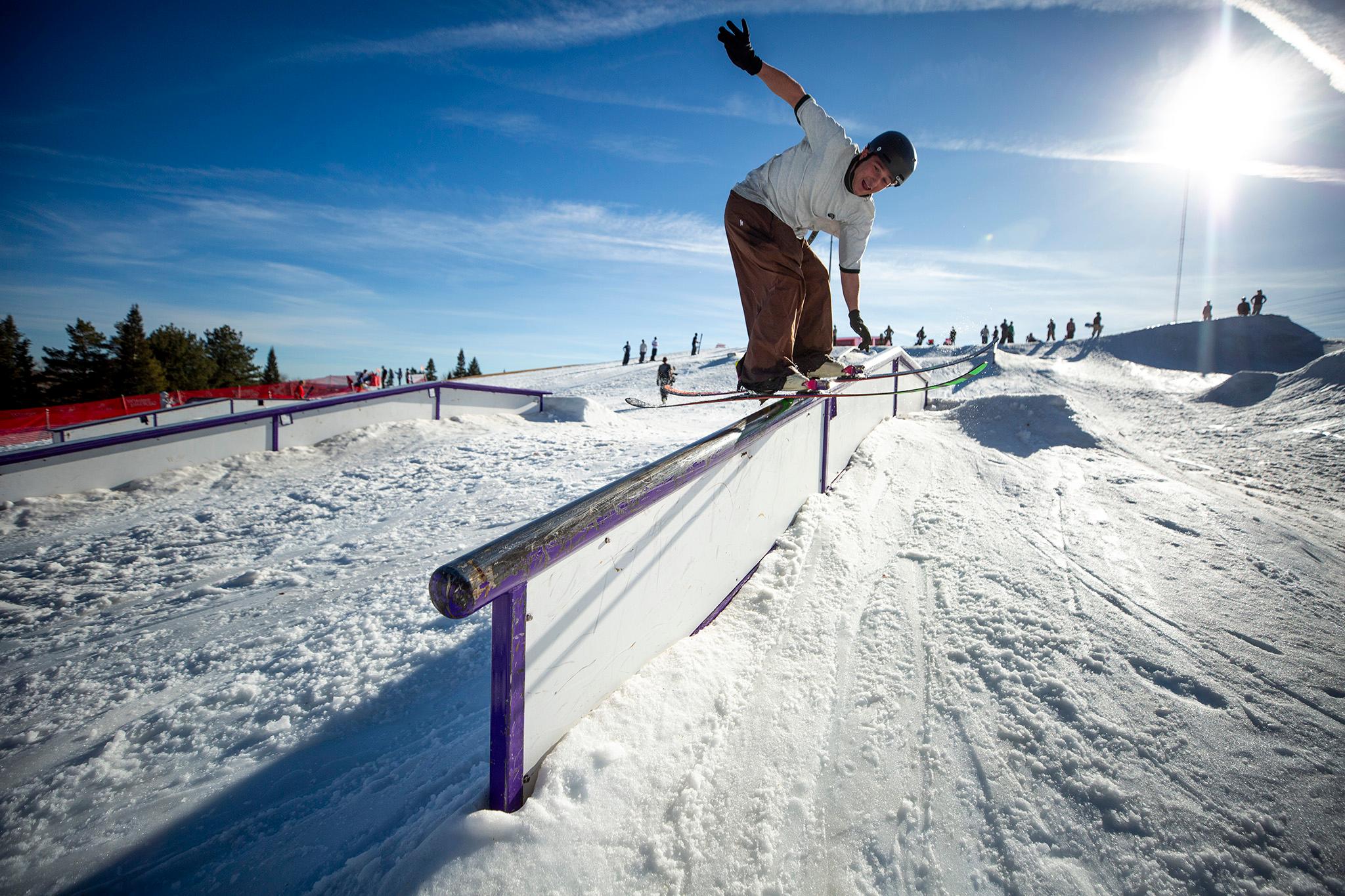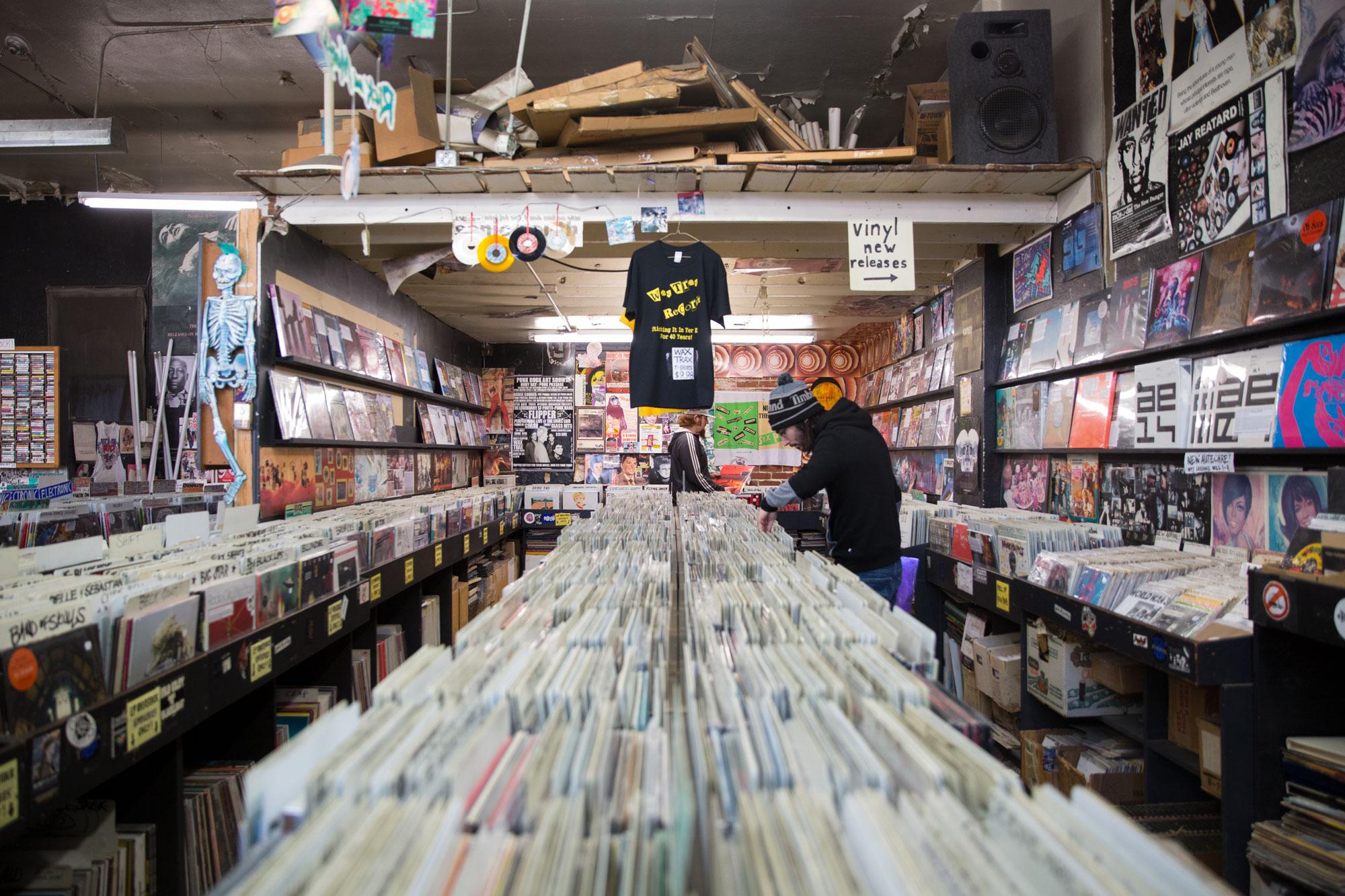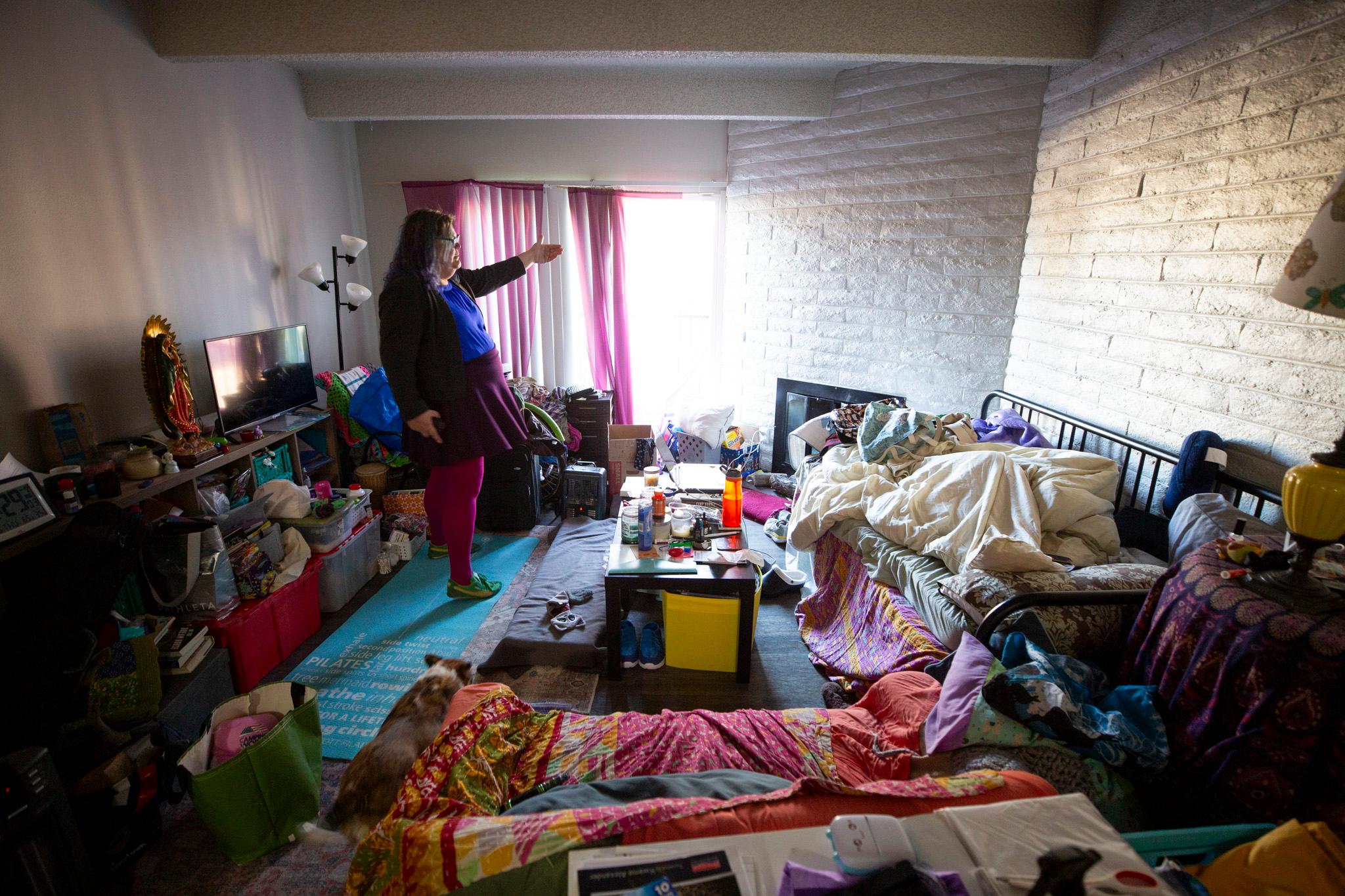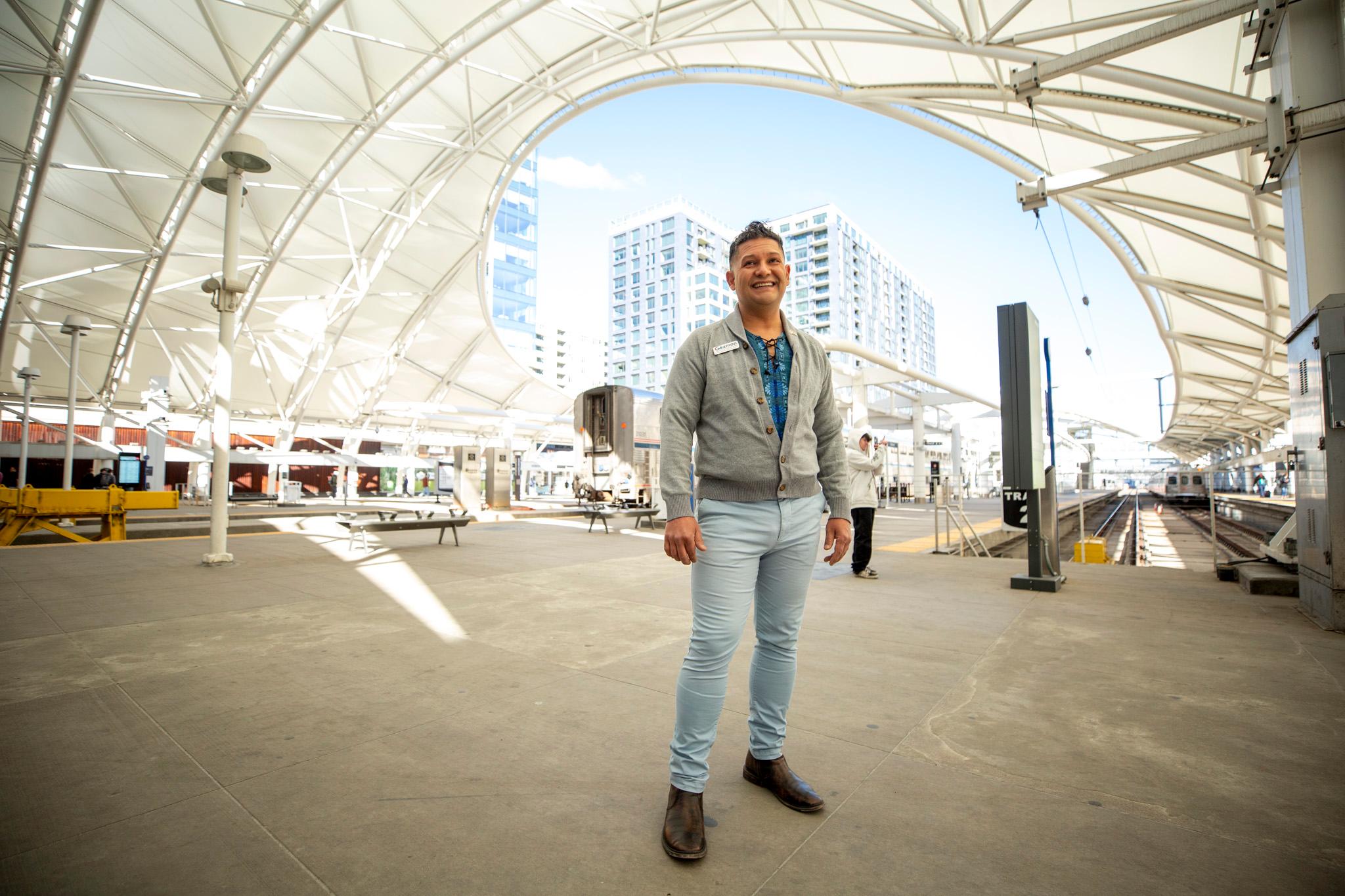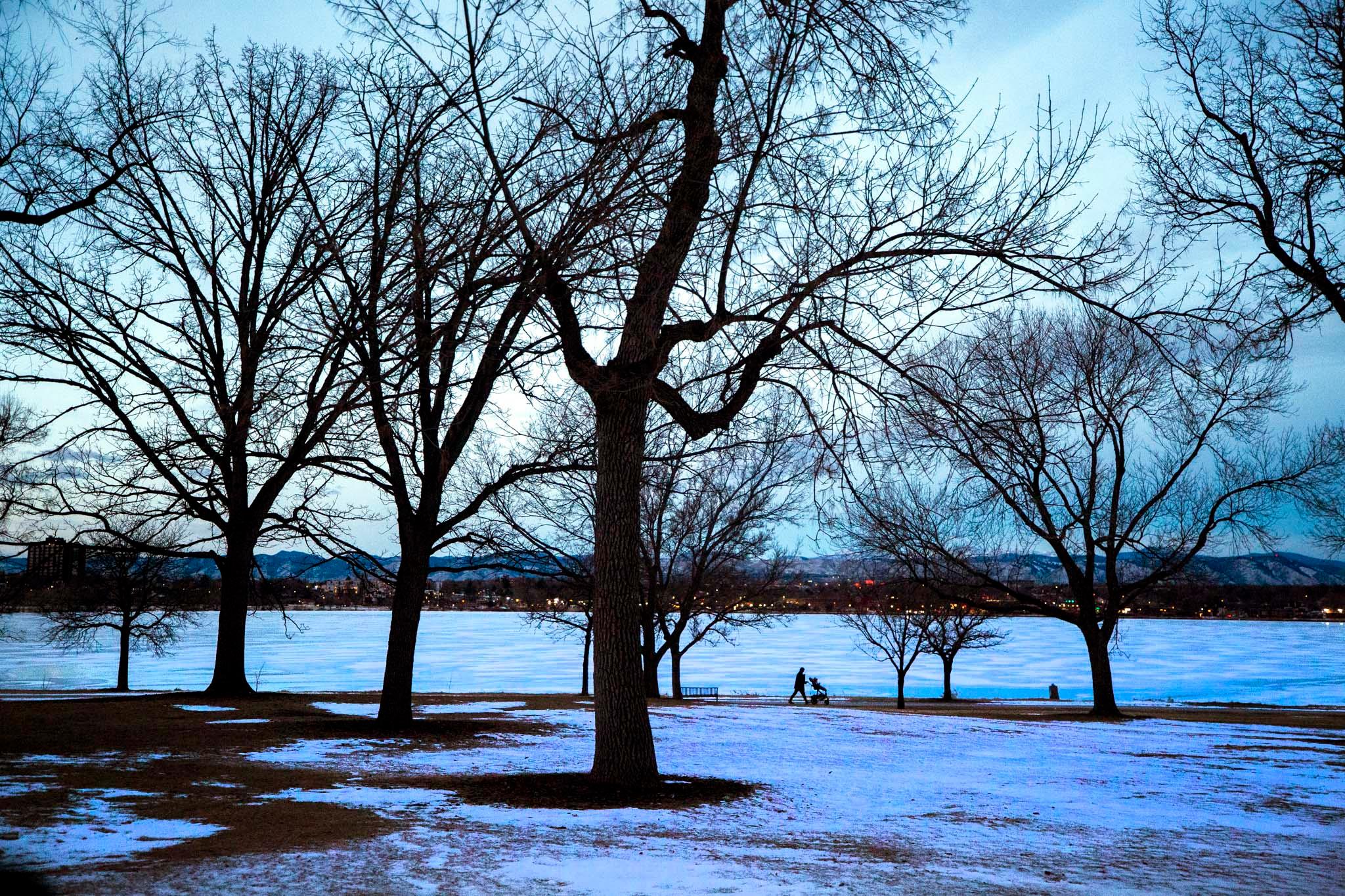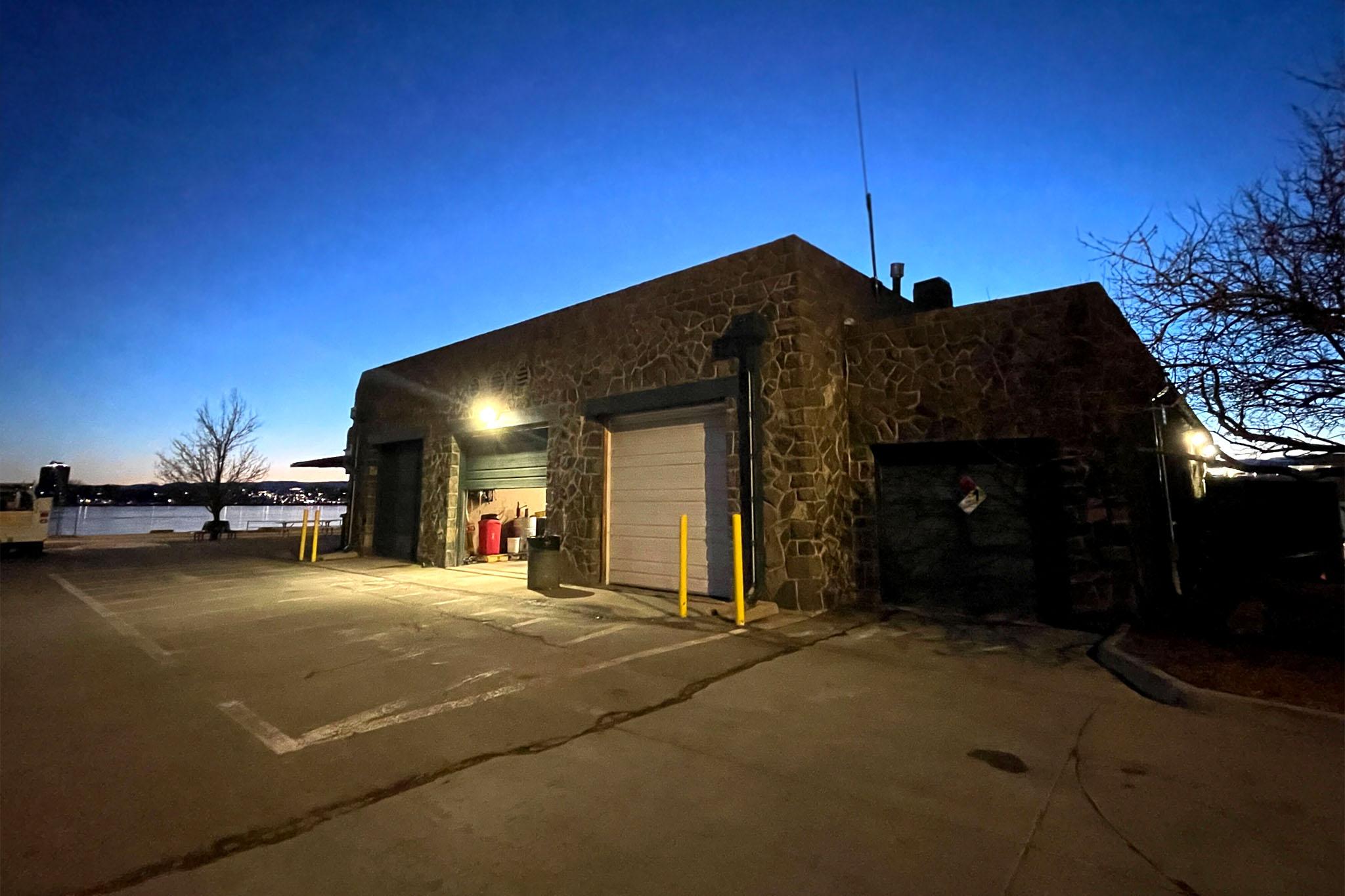If you want to know something about the Denver hip-hop sound, ask the guy who left and came back.
D-Trait -- real name Tunde Williams -- was born in Denver and spent his early years in Philadelphia before returning for good at 16. Since then you might have heard him rapping outside George Washington High School -- or more recently, singing inside a spot like Your Mom's House. His style and approach have changed over the years, but then so has Denver's.
"I feel like at one point Denver did have its own sound, and it's getting back to a point where is does," he told Denverite in an interview that also covered his own sound, the value of a unified scene and his post-show routine.
You can catch him live on Feb. 24 at Black Box, hear him now on your streaming service of choice, and read what he had to say right here:
Ashley Dean: How did you get your start in Denver?
D-Trait: I've always been musical. I love music. So when I did move back I was like, the new kid around. A lot of people were already established. I went to George Washington High School. George is one of them special places. Everyday is a fashion show. ... We used to have rap battles after school every day. Everybody that was dope was rapping after school. I was always a part of that. I would rap and the people who would be there would be like, "Ohhhhh that was dope!" The people who wouldn't be there would be like, "He can't do that." So I had that "I don't believe in you" swag. I'd be beating everybody. Running through everybody. I never lost. I was known really well for that. I actually had a cool little buzz and a cool little team I was rocking with for a while.
I stayed here for school. Ended up going to Metro. I spent probably more time in the gym or outside of the gym rapping than I spent in class. People just knew me for that. There was a period when I kind of stepped away because I was going through a lot of different stuff that was taking my life in a different direction. I had to reestablish myself again.
AD: How would you describe your sound to someone who's never heard you, and is it different than it was before you took time off?
DT: It's definitely way different than what it was before I had that little hiatus. It's a much more mature sound. ... It's not singular in style. Before, I was always a straight rapper. I've always been blessed to be able to sing but I never put energy into it because I thought it was lame. ... As I got older, I was finding myself doing it more often. I'd be at the house doing whatever and I'd be singing some random freestyle stuff and every once in a while I'd get caught and someone would be like, "Wow, this is gold."
The things I'm able to do vocally are much more advanced now because I took more time to sharpen and advance the artistry. That opened the door for me to jump in different lanes. There's records before I couldn't jump on because I was a straight rapper. Right now, if you look at the majority of the top songs on the Billboard 100, they're a lot more melodic. That's what I do naturally.
I've made pop records at this point, I've made rap records, I've made R&B records. It's a much more adult sound, it's a much more mature sound.
AD: So this is something we've been talking about in the office lately: Do you think Denver has sound? And if it does, what is it?
DT: It's kind of hard to say right now and it's because I don't want to give a biased opinion. I feel like at one point Denver did have its own sound and it's getting back to a point where it does. I still feel like a lot of artists here are trying to sound like someone else. I hate to say it. I love them all. We're all friends. I don't have any beef with Denver artists. But I noticed it seemed like a lot people are taking their sound in a direction that's already been taken. That's something that separates myself. When I perform at different venues people say, "Wow, I haven't heard that before." ... So that lets me know that's something I need to keep doing.
I feel like at one point Denver transitioned to be the baby West Coast, the baby California. And a lot of people here are transplants. ... A lot of people moved here from the eastern seaboard and that changed sound of the baby West Coast. It's starting to get back to a point where that's definitely a Denver sound, but I don't think anybody could put their finger on it. ... I can't point to Trev [Rich] and be like, that's the Denver sound. If there's anybody I'd have to say that's the Denver sound, I'd say A Meazy. The Denver sound to me is really a collection of sounds, because the majority of people here are transplants.
Yeah and that's sort of what we were talking about here, whether those sounds would eventually coalesce into something.
DT: [laughing] Well, hopefully soon!
AD: What's the greatest strength of the hip hop scene here and where can it improve?
DT: The thing I love about the scene the most, just looking in from the outside and trying to be objective -- the issue we always have here I call the "crabs in the bucket syndrome." Everybody wants to be the guy, everybody wants to be the man, everybody wants to be the one. Because of that, there was no unity in the scene, people feel like they can't work together, they can't collaborate. ... Now it seems like everybody is branching out. Everybody is networking. It's kind of clicked. After years and years of everybody saying we're not making it because we're not working together ... people got tired of saying it and decided to do it.
A lot of us have been on the same shows with everybody we don't know. A lot of the promoters are working with new people now. It used to be: you don't know these three specific names or they don't know you, you're not in with them, you're not gonna get booked. That's how it used to be. ... But the best inventions came in perilous times when people had to figure it out. (He cited Chicago and Atlanta as cities where the scene unified in order to get taken seriously nationally.) It's dope because I feel like everybody is working, everybody is networking, everybody is unified.
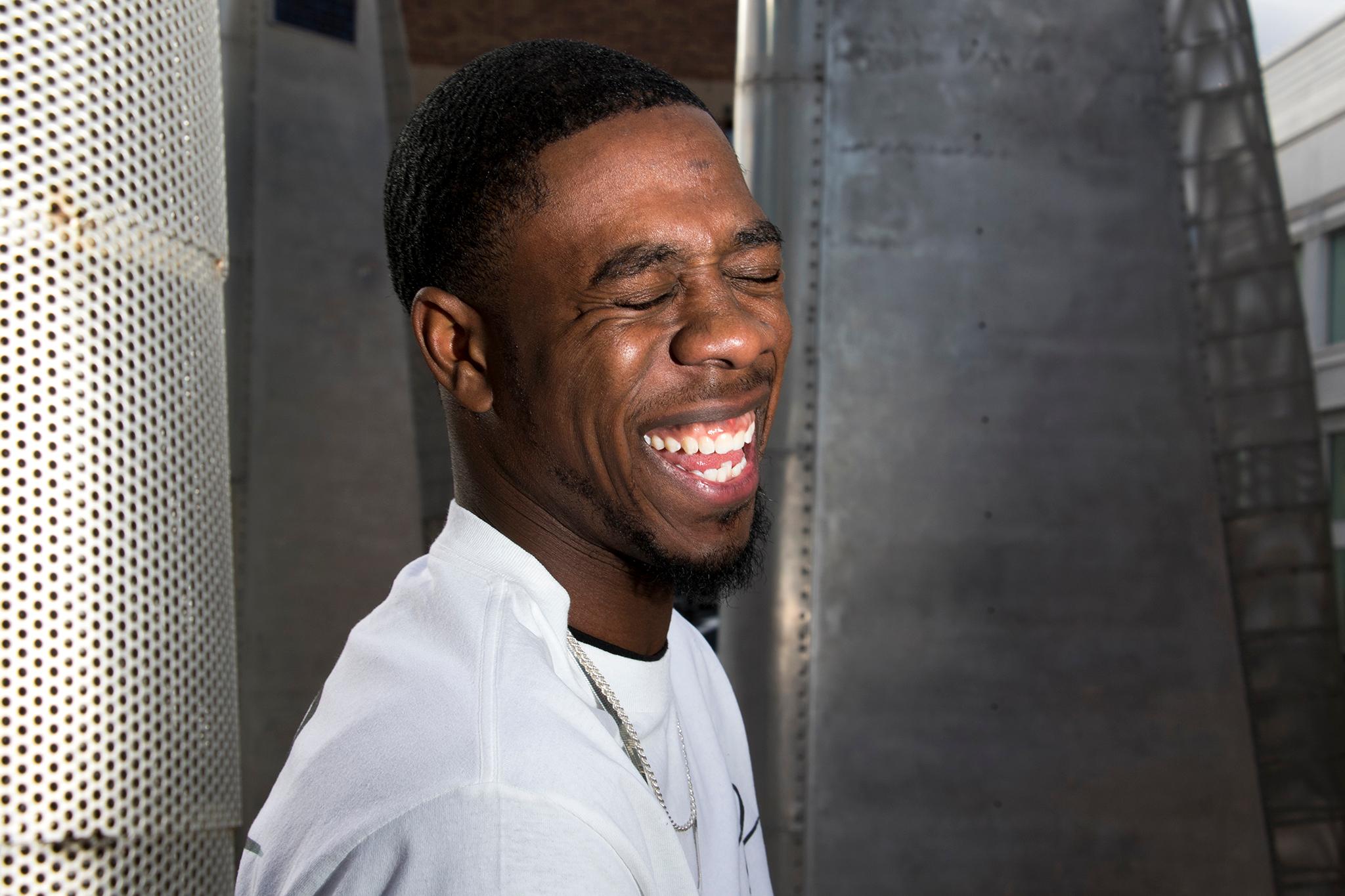
AD: Where in Denver to you tell people to go for good hip hop?
DT: Live at Jazz@Jacks, they do what's call the 5280 Jams, which is usually the last Sunday of the month. Thats' super, super dope. I've met some amazing artists there. I know Roux Black does this thing called the Test Kitchen, that's super, super dope. Also they have another thing called the Cypher, that's super, super dope. And you have other things too that might not be hip-hop based but someone who's apart of the crowd and would go there to network -- Deja Vu Poetry Night at a place called Vinue.
AD: OK, last one is an easy one: How do you reward yourself after a good show?
DT: It's funny 'cause my routine is kind of the same. The first thing is, after a good show -- me personally performing because if I'm headlining then I will be the last person to leave -- I don't want anybody around me when I leave. I don't want anybody walking with me to the car. I want everybody gone. In that scenario, I leave, I walk to the car, I sit in the car for two minutes, real quick, just soak in the moment. I thank god and say my prayer. Then I get on my phone and figure out where to eat. I love, love, love to eat. If I could eat at Benihana for breakfast I swear I would. I love food. Then I network. ... I sit down with my team, I plot where I'm going, get their thoughts and tell everybody where I'm going from there. I get home, say another prayer -- the "thank you," extended version -- then I count my money.
This interview has been edited for length.
